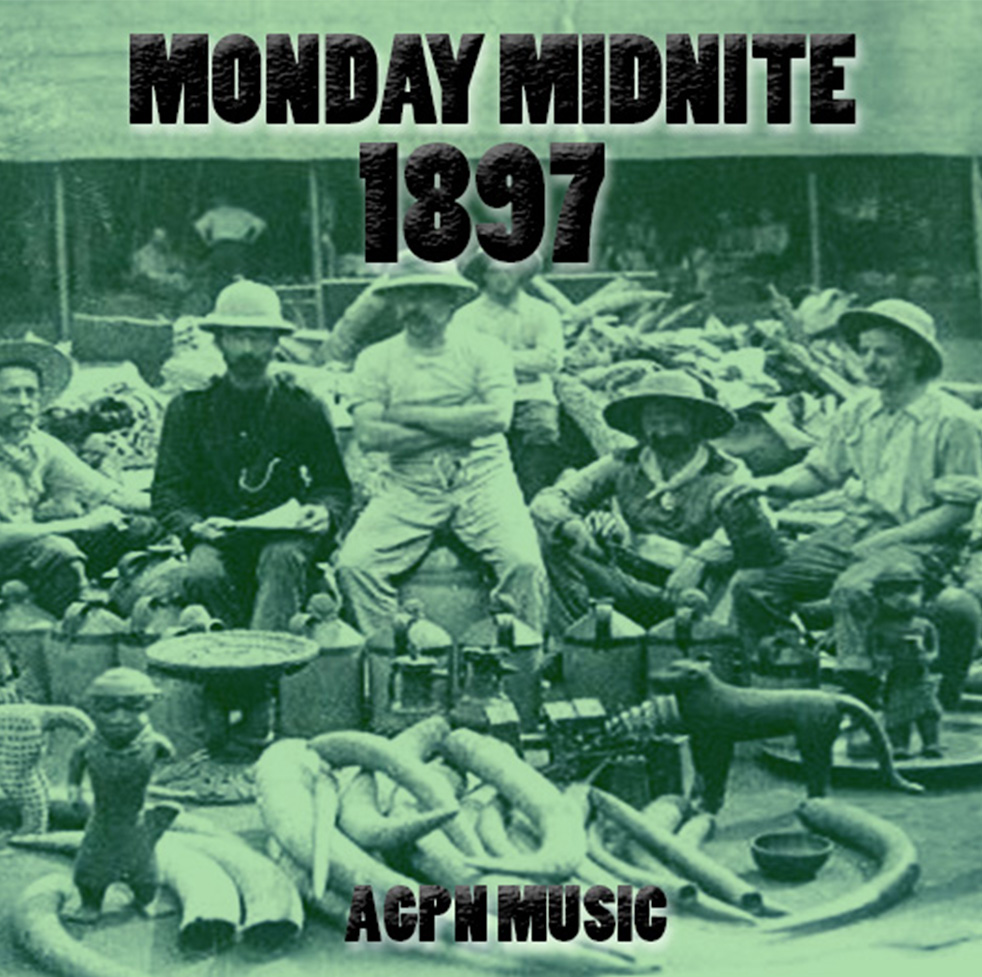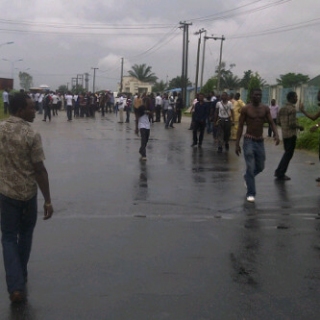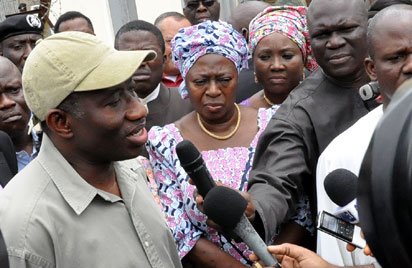IN less than a week, precisely October 31, 2011, Nigeria’s population will hit the 166 million mark. This figure implies that the country will be contributing about 2.4 per cent of the world’s population and at the same time, about five million people are added to Nigeria’s population on a yearly basis.
According to a recent population report,Nigeria’s population would overtake that of the US by 2050. What does this portend for Africa’s most populous nation. CHARLES KUMOLU writes.
THE event was not convened to raise fears about Nigeria’s population growth, neither was it held to highlight the adverse effects of the county’s growing population.
But the aftermath of the 2011 World Population Day has continued to caused fears within concerned circles.
Not even assurances from the Chairman of the National Population Commission, Sumaila Makama, who noted that increase in Nigeria’s population signifies a positive development, calm fray nerves at the event.
Rather, many have continued to ponder on some revelations about Nigeria’s population.
Said he:“A cursory look at the data on our population growth rate of 3.2 per cent creates some fear of the consequences of rapid population increase. The challenge, however, is for government, civil society organisations and individuals’ responsibility to use data provided for informed policies relative to the population of Nigeria.”
Massive population

A picture taken on February 6, 2006 shows people struggling for space between public transport buses and trucks at the burstling Oshodi bus stop in Lagos. The world's population of seven billion is set to rise to at least 10 billion by 2100, but could top 15 billion if birth rates are just slightly higher than expected, the United Nations said on October 26, 2011.AFP PHOTO
Although, massive population can be an advantage, but if not well controlled and planned for, it becomes a problem. And given Nigeria’s attitude towards planning and control has raised eye brows in may quarters. But more worrisome in recent times is the US based Population Reference Bearue,PRB, report on Nigeria.
The Washington based agency, revealed in its 2011 World Population Data Sheet that the country’s population would be 433 million by 2050.
This implies that Nigeria would be the third largest country in the world, behind India and China, bigger even than the United States of America (USA) and with only a 10 per cent of the land mass.
The report further indicated thus: “today’s world population is double the population in 1967. But while the overall growth rate has slowed, the population is still growing, and growth rates in some countries show little if any decline.”
Continuing, it said, “”Even though the annual population growth rate has declined to 1.2 percent per year, world population grows by about 83 million annually. If the late 1960s population growth rate of 2.1 percent—the highest in history—had held steady, world population would have grown by 117 million annually, and today’s population would have been 8.6 billion.
“The world added the sixth billion and the seventh billion in a record 12 years for each,” says Carl Haub, PRB’s senior demographer and co-author of this year’s data sheet. “The eighth billion may also take about 12 years, but only if birth rates in all developing countries follow projections that assume a smooth decline to two children or fewer.”
However, many do not believe the statistics are scary, particularly for Nigeria.
For the average man on the street, it is a call for government to wake up to its responsibilities.But government sees this as a positive development.
But, whichever way it is viewed, the situation calls for positive attitude from the government.
This is hinged on the believe that rapid population growth, is usually accompanied with high fertility rates, high childhood mortality rates, high crime rates, increased deaths and diseases, among others.
Founder of Odua Peoples Congress,OPC, Dr. Fredrk Fasheun belongs to the group that has expressed fears about our increasing population rate.
“ I think Nigeria should take the report serious. Remember that the US also warned that Nigeria is going to break up by 2015. Hunger and poverty are things that would emerge in the event of that. I can assure that this population explosion might lead to death because there is hunger and poverty in the land,” he stated.
Fasheun also told Vanguard Features, VF that apart from his fears for hunger and poverty that would ravege the country, the situation might spill over to other West African countries in the sub region.
He explained how this can come about.
“There is need for the government to prepare the country for any eventuality. It will be very unfortunate for the West African sub region if the population becomes a bit explosive because Nigerians will just spill over to the neighbouring West African countries and it will affect the integrity of the country,” he responded.
Accordingly, he said, “I know Nigeria does not have ways of managing things like this and the scenario I have painted says much about it. Nigerians will spill over to these countries and become refugees in these countries. But to be forewarned is to be forearmed. If the US based agency has warned of such explosion, it must be taken serious.”
This position, however was also supported by an African Development Bank Report on Nigeria’s population growth.
“ Nigeria’s large population has development implications.To begin with, it does not augur well for planning purposes. Plans only succeed when the implementation is pursued with reliable data. But in the Nigerian experience, the unreliability of demographic data makes plan implementation a futile exercise in the country,” ADB observed.
Another Federal Government report, says: “rapid population growth in Nigeria is equally associated with unemployment with figures ranging from 17 per cent per annum for the entire population to 60 per cent for the youths because job opportunities are fewer than the number seeking for them, and stagnating economic performance because a larger proportion of available resources is consumed instead of invested to generate growth,” also corroborated the ADB position.
Consequently, the question begging for answer presently is: What is be responsible for this population rise?
Population growth
Population growth rate is influenced by the interplay of the three main demographic processes of fertility, mortality and migration, VF gathered.
In addition, President of Akaikenga, Dr. Sylva Ebigwie told this reporter that: “People believe that the more children they have, the better off they are. I can say generally, that because of our traditional beliefs and religious teachings, it would be difficult to control population growth in the country,”
He further added that, “Most Nigerians are not educated and they still believe in their primordial practices, until you get them educated, there is no way we can talk about controlling it. We need education too, in order to make a headway, but the education is not forth coming. Many of our children go to school but the school do es not go through them. A lot of Nigerians are illiterate and there is no way to change an illiterate mind.”
Continuing along a similiar line, the President of the Pan Igbo Socio-Cultural organisation said: “ Many people procreate in this country and they can not train their children.. Some of these children become criminals and constitute nuisance to the society.
They have no education because they have no access to education. They have no job because they have no access to jobs, they have no money because they have no access to money. To have money, they have to take to crime, which to them is the easiest way to make money. These are the issues that affect our nation today.
Planning for the populace
“The more the population grows, the more criminality and other ills will grow, because we don’t have the habit of planning for the populace. It also affects the environment, because there is no adequate housing; even in agriculture we will have few land for farming. Every thing negative would come to Nigeria in the event of this projected population explosion.”
Despite this, Ebigwei disagreed with the PRB report, noting that it is impossible for Nigeria’s population to overtake that of the United States of America.
He based his argument on reasons such as life expectancy and health care delivery.
“It is not possible for Nigeria’s population to overtake that of the US. We have a lot of factors in Nigeria that would not allow that to happen.
In the US, the average life span for a man is 75 years, while that of a woman is about 77 years. So anybody saying that due to impending population explosion, Nigeria would overtake the US may not be right, because our healthcare delivery is not as good as that of America. On the other hand, the problem with Nigeria today is that things are not done rightly,” Ebigwie added.
Nonetheless, the Executive Director of Centre for Population Control and Regulation,CPCR, Dr. Godspower Tonye disagreed with Ebigwie, stressing that the PRB account is in order, given the pattern of the nation’s population increase.
“Yes, I agree with them. The projection is correct. Why won’t we have that kind of overpopulation. Looking at the figures whereby the current yearly growth rate of 3.2 per cent, as indicated by the 2006 census you will have no option than to believe the report.”
When prodded on what the government is expected to do in the face of this report, he said: “What is expected of any reasonable government is to start planning and take family planning serious. That is what we are preaching and working on in CPCR”
Perhaps, that why Ebigwie insisted that , “Unless Nigeria engages in what China did by pegging two children to one man, we will not get it right in our efforts to control population. Already the Federal government recognises four as the official number of children but its not working.”
Continuing he said, “the rate of population growth constitutes a number of problems, because it puts pressure on the country, especially in housing, environment, education, economy, unemployment among others.
Population controversies in Nigeria
In spite this, VF gathered that the issue of population, has remained contentious in Nigeria because again and again population issues have been politicised to favour some parts of the country.
Perhaps, this informed the views of some who spoke to VF. They argued that the population may not hit the 433 million mark as projected by PRB. In 1996 for instance, a BBC report on Nigeria’s 1996 Census titled: ‘Nigeria’s counting controversy’ provides a glimpse of population controversy in Nigeria since 1963.
“No-one knows how many Nigerians there are – and till date, the authorities have been too afraid to find out. It is believed that one out of every five black people on earth is a Nigerian.
But that can only be an assumption, for every headcount held in Nigeria in the past 30 years has ended in national controversy and with strong allegations of population inflation.
The last census was carried out in 1991. Its figures which are regarded only as being marginally less manipulated than the others – put the total population at 88.9 million, almost equally divided between the two sexes,”the report stated.
It also said, “Since then the population has been projected on an annual growth rate of about 2.9 percent. The official projected figure for 2003 was 126 million.”











